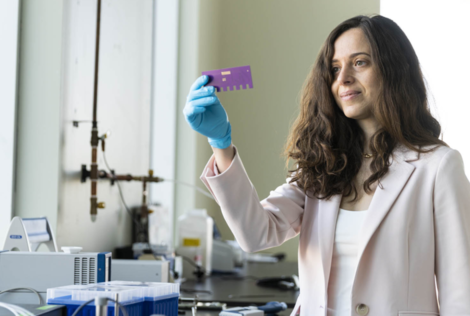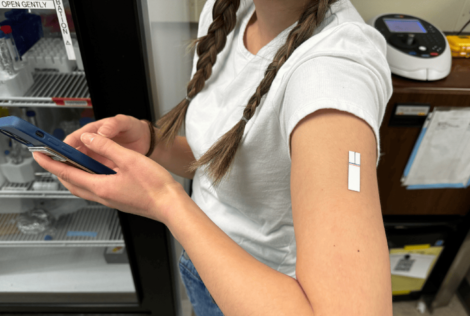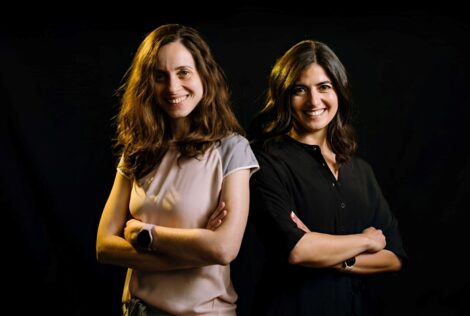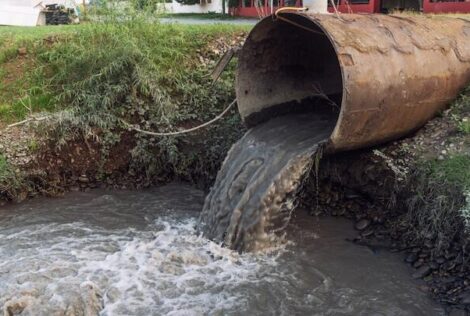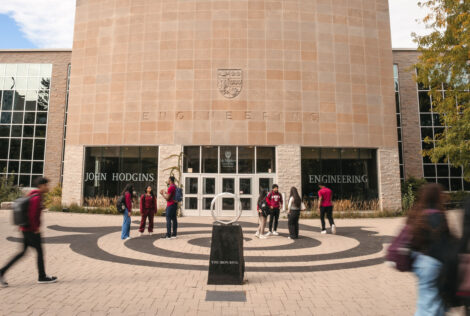
Expertise
Areas of Specialization
Research Clusters
Current status
-
Accepting graduate students
-
Professor and Canada Research Chair in Miniaturized Biomedical Devices
Engineering Physics
-
Associate Member
McMaster School of Biomedical Engineering
Overview
Currently Accepting Graduate Students
Biosensing
In order to address the urgent needs of the fields of point-of-care diagnostics and continuous health monitoring, we are developing new strategies for integrating bio-recognition systems with electrochemical and photoelectrochemical sensors. We are developing strategies for detecting proteins, nucleic acids, and cells using methods that translate biological capture events into changes in the amount of electronic charge transferred to electrode. These signal changes can then be read using simple and handheld electrical test and measurement instruments.
Biological sample preparation
Sensing of nucleic acids and proteins requires sample processing steps for releasing, extracting, enriching, and amplifying these biomolecules from complex biological matrices. We are focused on developing integrated electromagnetic approaches towards biological sample preparation. The projects in this area rely on a hybrid theoretical/experimental route towards designing suitable sample preparation devices. Specific projects include fully integrated electrical systems for cell lysis and magnetic systems for nucleic acids enrichment, cell sorting, and analyte extraction.
Rapid prototyping
Multi-lengthscale materials are critical for use in fully integrated biosensing systems. We are developing strategies for creating materials that are tunable from the nm to the mm lengthscale range for optimal interaction with biomolecules and cells and effective interaction with the outside world. We are combining techniques such as electrochemical deposition, smart polymer induced wrinkling, and nanoparticle self-assembly to develop application specific materials rapidly and on the laboratory benchtop. We believe these rapid prototyping techniques will expedite the development of new point-of-care diagnostics and health monitoring platforms.
In-situ liquid transmission electron microscopy
There is tremendous interest in observing dynamic processes like nanomaterials synthesis, battery electrode cycling, electrode corrosion, nucleic acid amplification, and biomineralization in real-time and with nanoscale resolution. We are using in-situ liquid transmission electron microscopy for in-operando observation of these processes. Built-in electrical and fluidic circuitry allows us to observe electrochemical, in addition to other in-liquid processes.
Did you know?
Dr. Soleymani was awarded the Douglas R. Colton Medal for Research Excellence. This award is given for research leading to new understanding and novel developments in microsystems and related technologies.
Leyla Soleymani received the B.Eng. degree from McGill University, the M.Sc. degree from University of Southern California, and the Ph.D. degree from University of Toronto. Throughout her research career, Soleymani has taken a multi-disciplinary approach in combining innovations in physics, electrical engineering, materials science, and biochemistry for solving problems in healthcare. She is currently an associate professor at McMaster University, with research interests in areas of biosensing and nanofabrication. More specifically, she is interested developing in-vivo and in-vitro diagnostic platforms for early disease detection, modeling nano- and micro-scale sensors, fabricating hierarchical and hybrid materials using chemical deposition methods with nanometer resolution, and studying materials growth using in-situ techniques.
A complete list of publications is available at:









